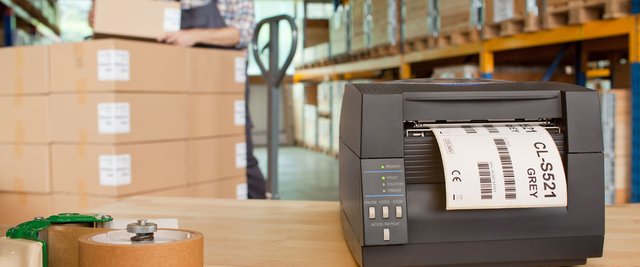Choosing the Right Barcode Label Printer for Your Retail Store: A Complete Buying Guide
In today’s fast-paced retail environment, efficiency and accuracy are essential. From tracking inventory to speeding up checkout, barcode labels are an integral part of running a successful retail store. But when it comes to choosing the right barcode label printer, the options can be overwhelming.
Should you go for a thermal printer or an inkjet one? Do you need portability? Is print speed more important than label quality? In this guide, we’ll break down everything you need to consider before investing in a barcode label printer for your retail business.
- Why Your Retail Store Needs a Barcode Printer
Barcode label printers are not just tools—they're part of the core infrastructure of your store. They help:
Automate pricing and inventory management
Speed up checkout times
Reduce manual errors
Create a professional, organized product display
Improve customer satisfaction through quicker service
Whether you’re running a clothing boutique, electronics store, or grocery mart, the right printer ensures your operations run smoother and more efficiently.
- Types of Barcode Printers: Thermal vs Ink-Based
Direct Thermal Printers
These printers don’t use ink or toner. Instead, they use heat-sensitive paper that turns black when heated. They’re cost-effective and low maintenance, perfect for temporary or short-term labeling (like shipping labels or receipts). However, labels may fade over time.
Thermal Transfer Printers
These use a heated ribbon to apply ink onto labels, making them long-lasting and durable. Ideal for stores that need product labels, shelf tags, or labels exposed to heat, sunlight, or chemicals.
Inkjet or Laser Printers
Not commonly used in retail for barcode printing due to higher costs and slower speeds, but they might be suitable for small-scale or highly customized label jobs.
- Desktop vs Mobile vs Industrial Barcode Printers
Desktop Printers
These are the most common choice for retail stores. Compact and affordable, they’re great for moderate volume printing and fit well at checkout counters or back offices.
Mobile Barcode Printers
Designed for portability, these can print labels anywhere on the shop floor. Useful for staff managing inventory or pricing in real-time without having to return to a central station.
Industrial Printers
Best suited for warehouses or retail operations with high-volume labeling needs. They’re faster, more durable, and designed for continuous use—but come with a higher price tag.
- Key Features to Consider When Buying
Before purchasing a barcode label printer, here are essential factors to consider:
a) Print Volume
Low Volume: A compact desktop model will suffice.
Medium to High Volume: Consider a more robust printer with higher print speed and label capacity.
b) Print Resolution
If you need to print small barcodes or detailed graphics, opt for a high-resolution printer (300 DPI or above). For basic barcodes and text, 203 DPI is typically sufficient.
c) Connectivity Options
Modern printers offer multiple connection methods:
USB: Standard for most desktop setups.
Ethernet: Ideal for networked printing environments.
Wi-Fi/Bluetooth: Great for mobile or wireless printing setups.
Choose a printer that integrates easily with your POS system and inventory management software.
d) Label Compatibility
Make sure the printer supports the label sizes and types you need. Some printers are compatible only with proprietary labels, which can limit flexibility and increase ongoing costs.
- Top Barcode Printer Brands for Retail
Some of the most reliable brands in the market include:
Zebra Technologies – Known for durable and high-performance printers, especially in high-volume settings.
DYMO – Great for smaller businesses and offices; their LabelWriter series is very user-friendly.
Brother – Offers budget-friendly options with reliable quality for moderate retail use.
TSC – A solid brand offering a range of thermal printers suitable for all retail sizes.
Rollo – Fast, efficient, and highly recommended for online retail and shipping needs.
- Budget vs Long-Term Value
While it’s tempting to go for the cheapest option, consider total cost of ownership (TCO):
Will you be tied to buying expensive branded labels?
How often will you need to replace parts or perform maintenance?
Is the printer durable enough to last several years?
Investing in a slightly higher-end printer can save money and hassle in the long run, especially as your business scales.
- Maintenance and Support
Choose a printer with good customer support, easy access to replacement parts, and detailed user guides. Look for features like:
Easy label loading
Auto calibration
Diagnostic tools for troubleshooting
Also, check whether the manufacturer provides firmware updates to keep your printer compatible with evolving technology.
Final Thoughts: Which Barcode Printer Is Right for You?
There’s no one-size-fits-all answer. The best barcode printer for your retail store depends on your specific needs:
Small store with basic labeling? A desktop direct thermal printer may be all you need.
High-volume store with multiple departments? Consider an industrial or thermal transfer model.
Constantly on the move? Mobile printers with Bluetooth or Wi-Fi connectivity might suit you best.
Take time to evaluate your workflow, budget, and long-term goals. With the right barcode printer in place, you can improve your store’s efficiency, accuracy, and overall customer experience.
